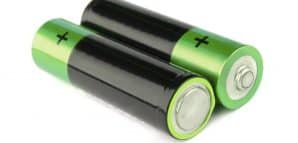
随着当前推动将更多的环境友好做法纳入我们的能源消费方式,现在比以往任何时候都更需要可持续能源解决方案,以发展和跟上不断变化的趋势和技术发展。对这一需求的一个可能答案是固态电池的发展。固态电池与锂离子电池的不同之处在于,它们有固体电解质,而不是液体电解质,这使电池具有更高的电化学稳定性。从液体电解质到固体电解质的这种转变非常重要,因为它消除了更常用的锂电池中发现的一些最大问题,如:高可燃性、热失控风险和有毒泄漏。除了是一种更安全、更稳定的电势能存储形式外,将液体电解质替换为固体电解质还意味着可以将能量存储在更紧凑的外壳中。
These stated advantages have unsurprisingly caught the attention of not only electric vehicle (EVs) manufacturers, but also stakeholders involved in heavy road transportation and maritime travel. Solid-state battery’s downsized frame yet equal energy storage capabilities means that it effectively cuts cost while being able to increase performance and stability. Although there is still work to be done before it can be considered commercially viable, the potential it holds has led many to believe that it should and will become the standard of electrical energy storage systems within the coming decade.
- 安全和可靠
Currently, lithium-ion batteries are still favored and more commonly used because of its relatively higher energy density and longer life compared to batteries made of other materials. However, as previously mentioned, the use of liquid electrolytes exposes the battery to a list of potential dangers which make it unpredictable to work with. There has always been a risk for any product that uses lithium-ion batteries whether it be toys, computers, or even EVs, as the battery’s susceptibility to high temperatures means that the it could easily overheat or spontaneously combust if the battery pack is damaged or faulty. This threat has been a major factor in prompting many researchers and battery developers to double down on their view of solid-state batteries, which are non-flammable and resistant to self-ignition, as a safer and better battery alternative for all types of technologies.
- 节能
Aside from its apparent advantages in safety, researchers believe that solid-state batteries also hold the potential to store up to 2 to 3 times the amount of energy that could be stored in a liquid-electrolyte lithium ion battery of the same size. The drastic step up in storage capacity could prove to be revolutionary for EV manufacturers in addressing common reservations about EVs such as range anxiety, as using solid-state batteries will allow EVs to travel even longer distances without any changes to battery size. The ability of solid-state batteries to function under higher temperatures means that it wouldn’t require the same cooling systems needed for lithium ion batteries to keep it from overheating, hence, apart from it being a more compact battery system it is also a lighter and more efficient alternative as well.
- 设计的灵活性
固态电池带来的另一个额外优势是其可塑性。固体聚合物电池可以做成0.64毫米的薄片,大约是最薄的液态离子电池厚度的十分之一,这使得它们更加灵活,更容易操作。这也意味着固态电池的电池外壳并不局限于矩形,而是可以根据它所安装的产品的不同空间限制来进行塑形。这种水平的可定制性使制造商能够探索更大胆和更有创意的设计解决方案,因为电池间距不会像液态离子电池那样成为一个问题。
挑战
的确,有很多理由说明从液体电池到固态电池的转变将是一个有利的变化,然而,如前所述,固态电池仍有一些障碍。 电池研究人员 have to get over in order for it to be fully implemented into practical everyday settings. One such hurdle stems from the fact that solid-state batteries feature physical limitations which are not present on lithium ion batteries. Solid-state batteries are inherently less conductive than their lithium ion counterparts because the solid medium means that it diffuses ions at a slower rate. Apart from that, the performance of solid-state batteries is thermally dependent – Solid-state batteries only operate optimally only under higher temperature conditions, while their conductivity and performance is reduced drastically under lower temperatures. This means that currently, solid-state batteries are constrained by temperatures which prevents them from being as versatile as they need to be.
固态电池的另一个限制是,作为相对年轻的技术,固态电池与其他可用的替代品相比仍然相当昂贵。据估计,到2026年,固态电池的价格可能在$800/kWh到$400/kWh之间,而目前液态电解质电池的价格在$156/kWh左右。这意味着固态技术也有待于成为经济上可行的替代方案。
总结
固态电池技术仍处于发展阶段,仍需要进一步改进和完善。然而,尽管它目前处于早期阶段,但固态电池目前所表现出的潜力已经非常有前途。一旦固态技术成熟,它无疑将不仅是电池技术的巨大进步,而且将通过提供更有效和更安全的能源储存解决方案,推动整个可持续能源的发展。


